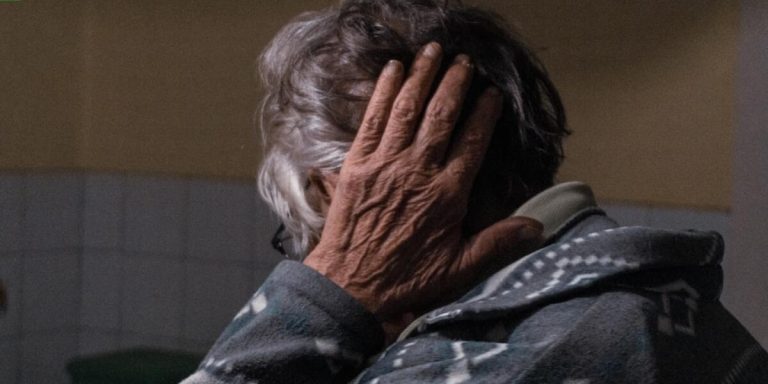Does Trazodone Cause Hair Loss? Digging Deep into the Connection Between this Medication and Alopecia
The question, “does Trazodone cause hair loss?” has sparked significant interest and concern among individuals using this medication. Hair loss is a delicate issue that affects many people across the globe; understanding potential triggers like medications can make it easier to tackle the problem.
This blog post aims to explore any possible connection between Trazodone – an antidepressant most commonly used for treating depression and anxiety disorders – and alopecia (the medical term for hair loss). We will delve deep into scientific studies, expert opinions, patient experiences in order to provide a comprehensive answer rooted in facts not hearsay.
Did you know?
Interestingly, while Trazodone is often prescribed for depression and anxiety disorders, it’s been implied in some rare cases to potentially cause alopecia. However, the correlation isn’t definitively established yet; making it a topic worth investigating.
Understanding Trazodone: Composition and Common Side Effects
Trazodone is a popular antidepressant known for its ability to tackle mental health issues such as depression and anxiety, which can lead to improved sleep patterns. It works by influencing chemical changes in the brain that are directly linked with symptoms of these common psychological conditions. However, like any medication trazodone does have potential side effects – one controversial possibility being hair loss.
While it’s not among the most frequently reported side effects associated with trazodone use – those typically include dizziness, dry mouth or gastrointestinal distress – there has been growing concern about possible connections between this drug and hair thinning or shedding experienced by some users. Medical literature offers limited data on this subject matter specifically; however anecdotal accounts point towards an association that warrants further investigation.
It’s important to remember though that correlation doesn’t automatically imply causation. Just because individuals who take Trazodone also report experiencing hair loss at times doesn’t necessarily indicate a direct cause-and-effect relationship between these two variables. Other factors might be at play including hormonal imbalances, nutritional deficiencies or stress levels—factors already proven pivotal in hair growth dynamics.
Exploring the Link Between Medications and Hair Loss
In the constantly-evolving field of medicine, it’s vital to be aware that every medication we ingest comes with its own set of side effects. One such drug is Trazodone – a common antidepressant prescribed for conditions like depression and anxiety.
The question many ask: “Does Trazodone cause hair loss?” The answer isn’t black and white as there are limited studies directly linking this medication to hair loss but some anecdotal reports suggest otherwise.
Let’s dive deeper into understanding this connection between Trazodone and potential hair fall concerns.
Diving into Trazodone’s Side Effect Profile
Well-known for its effectiveness in treating major depressive disorder insomniacs, it plays on the brain’s chemical messengers – serotonin receptors. However, like many pharmaceuticals designed to improve one aspect of health when tampered with nature’s delicate balance led by these chemicals also tends to invite unwanted repercussions.
Hair loss is not typically a primary side effect associated directly with Trazodone use. However, indirect links could potentially relate this drug to thinning locks. The two main reasons are:
1) Stress: Though Trazodone works wonders overhauling disrupted sleep patterns and uplifting moods- core areas impacting our stress level – sometimes adjusting does bring about initial anxiety phases before leveling out eventually.
2) Nutritional Deficiency: When starting new medications such as Trazodonem lack of appetite can be experienced leading us consuming less vital nutrients promoting healthy tresses growth including protein Vitamin B iron & zinc.
The understanding that every individual reacts differently should stay foregrounded while probing into possible connections between this medicine usage and any manifested symptoms (including possible unconfirmed ones like Hair Loss).
Investigating Hair Loss Causes in Prescription Drug Users
Hair loss can be a distressing side effect for individuals taking certain prescription drugs, and one such medication that has garnered attention recently is Trazodone. Known primarily as an antidepressant, many users have reported experiencing significant hair thinning or baldness after usage. This phenomenon prompts the need to investigate these allegations further in our bid to understand if indeed Trazodone does contribute to hair loss.
Despite its therapeutic benefits in managing depression, anxiety disorders and insomnia among other conditions; it seems trazodone might not be without potential drawbacks relating to user’s hair health. Some studies suggest that excessive shedding may result from changes this medication imparts on normal hormonal balance of the body affecting factors like DHT levels crucial for maintaining healthy follicular activity.
Patients using Trazodone should avoid panicking immediately when they notice some hair loss. The complex interplay of various physiological aspects often makes them hard to decipher conclusively. Whether Trazodone really causes severe alopecia remains a largely under-explored area requiring thorough investigation into all possible causes, including:
- Pharmaceutical-induced disturbances in scalp physiology
- Other potential triggers behind symptoms
Identifying these accurately can help treat any adverse effects and improve the quality of life for those affected.
The Role of Antidepressants in Altering Hair Health
Antidepressants, including Trazodone, have become a mainstay of modern healthcare. With their widespread use in combating mental health issues such as anxiety and depression also came the reports of possible side effects; hair loss being one among them.
In context to a specific example like,”does trazodone cause hair loss?”, we’ve found that there is indeed an undesirable change in the user’s hair health for some individuals. This isn’t exclusive to just Trazodone but extends over several categories of antidepressants.
The reason hinges on how these medications interact with our biological system. Antidepressants work by altering chemicals within our brain referred to as neurotransmitters – most noticeably serotonin which influences mood regulation. Herein lies potential problem: Overstimulation due partly to prolonged exposure can result in bodily distress initiating various responses, one prominent outcome could be increased shedding or thinning of hairs.
Moreover, each individual may respond differently based on hereditary factors and overall lifestyle choices making it trickier for medical practitioners when prescribing treatment regimes. Henceforth it becomes essential not only acknowledging this interrelation between certain types of medication usage with hair’s vitality but implementing necessary precautions while doing so too (such as regular monitoring).
Assessing Reports on Trazodone and Its Impact on Hair Growth
While exploring the labyrinth of “Hair Loss Causes,” it’s crucial to delve deep into various facets. One uncommon area is prescription medicine and its effects on hair growth, specifically focusing on Trazodone.
Trazodone, a popular antidepressant used widely for treating major depressive disorders along with insomnia in certain cases, has been under scrutiny recently due to emerging reports about potential side-effects that include hair loss. However concrete evidence linking Trazodone directly as one of the principal triggers for accelerated balding remains inconclusive at this point in 2023.
Several anecdotal testimonies online present instances where patients reported significant hair thinning after prolonged usage of the drug. But bear in mind these are self-reported cases and lack substantial medical corroboration or rigorous scientific back-up data making them unreliable stand-alone sources to assert if trazadone does indeed cause hair loss.
Several established studies suggest that stress usually acts as an underlying culprit for excessive hair shedding. Emotional distress, closely related to depression, and physiological stress caused by changing chemical balances in our bodies can sometimes lead to more than just losing strands indirectly. This happens when adjusting to new medications like Trazodone, often leaving users confused about whether their antidepressants are worsening their preexisting conditions. The confusion stems from incidental timing coincidences rather than direct causation links from medication-induced reactions.
Addressing Concerns Around Trazodone Induced Alopecia
A rising question in the field of hair and scalp health is whether the medication Trazodone can result in alopecia, or as it’s commonly known, hair loss. Used primarily to treat conditions such as depression and anxiety disorders, Trazodone has been increasingly associated with unintended side effects including weight changes, drowsiness and recently alleged reports of induced hair thinning.
The intricacies around these claims of trazodone-causing-hair-loss are not simple black-and-white narratives but have multiple dimensions worthy of thorough exploration. On one hand, scientific research offers limited direct evidence linking Trazodone to this adverse event; however anecdotal cases reported by patients suggest a possible connection that cannot be overlooked.
Understanding how medications interact with our bodies’ biological processes can provide key insights into mitigating their impact on critical functions such as hair growth. Mental stress from underlying medical conditions, which necessitate the use of medicines like trazodone, can increase or exacerbate existing alopecia. Thus, individuals must carefully analyze and consult healthcare professionals when navigating these complexities.
Evaluating Clinical Evidence Regarding Hair Loss from Trazodone
Trazodone, a medication often used to treat depression and other mental health disorders, has been linked with hair loss in some cases. This topic is causing concern among many patients who rely on this drug for their well-being. Hence, it becomes imperative to evaluate the clinical evidence regarding “does trazodone cause hair loss”.
Firstly, understanding how Trazodone works might shed light on its possible side effects. Trazodone increases brain serotonin’s levels – a neurotransmitter involved with mood regulation- but also affects various body systems.
When examining reported adverse effects of drugs like Trazodone, you will find alopecia or hair loss listed as one such possibility. However, it’s important to note that these reports come from percentage-based probabilities based on patient feedback rather than concrete scientific studies confirming causation.
There are limited case studies regarding trazodone-induced alopecia available worldwide – an indication that this side effect may be relatively rare or underreported due to lack of awareness about such correlation by both clinicians and patients.
Personal Stories and Anecdotal Evidence From Patients Using Trazodone
In recent years, a considerable number of individuals have raised concerns about Trazodone induced hair loss. If you’re wondering “does trazodone cause hair loss,” this section will provide some insights.
As we delve into personal stories and anecdotal evidence from patients using Trazodone, it’s important to recognize the diversity in experiences – not everyone taking this medication reports unwanted side effects such as alopecia. Nevertheless, these firsthand accounts can shed light on potential risks linked with its usage.
Among many who turned to online forums seeking answers after noticing significant changes in their scalp health are testimonials that point towards Trazodone use being correlated with increased hair shedding. Of note is Anna L., 34, who reported substantial thinning only six weeks following her start on the drug for anxiety management.
Likewise, James H., 45 suffered similar fate but noticed respite once he stopped his prescription. His statement stands out: “I started noticing my pillow covered in more hairs than usual around two months into my treatment regimen.” He further shared how his dermatologist validated a possible link between his sudden onset bald patches and continued use of the prescribed antidepressant.
Conclusion
In summing up, the waters remain murky surrounding the question “Does Trazodone cause hair loss?” While isolated instances suggest a possible link, empirical and scientific studies do not present solid grounds to establish this medication as an outright culprit for alopecia. It is advisable that if you are experiencing unusual hair fall after using Trazodone, consult your doctor rather than diagnosing it yourself.
Yet, remember that understanding hair loss involves peeling back layer upon layer of complex information – from health habits and genetics to dietary factors and even stress levels. So why stop here? Continue exploring our website where we unravel more about ‘Hair Loss Causes’, offering valuable insights into every facet related to this pervasive issue affecting millions worldwide.







